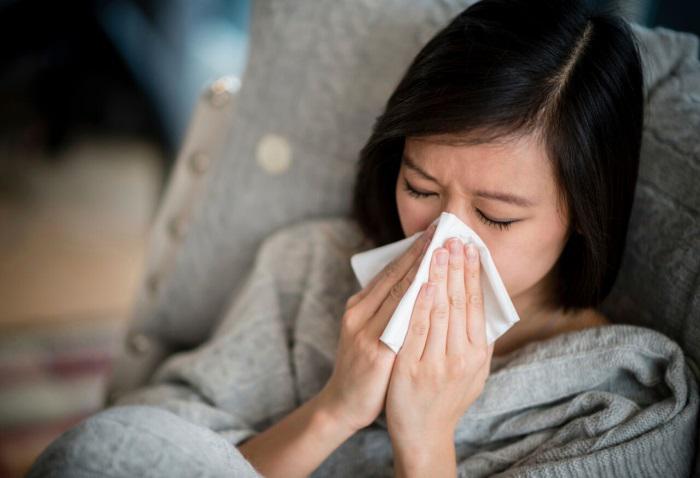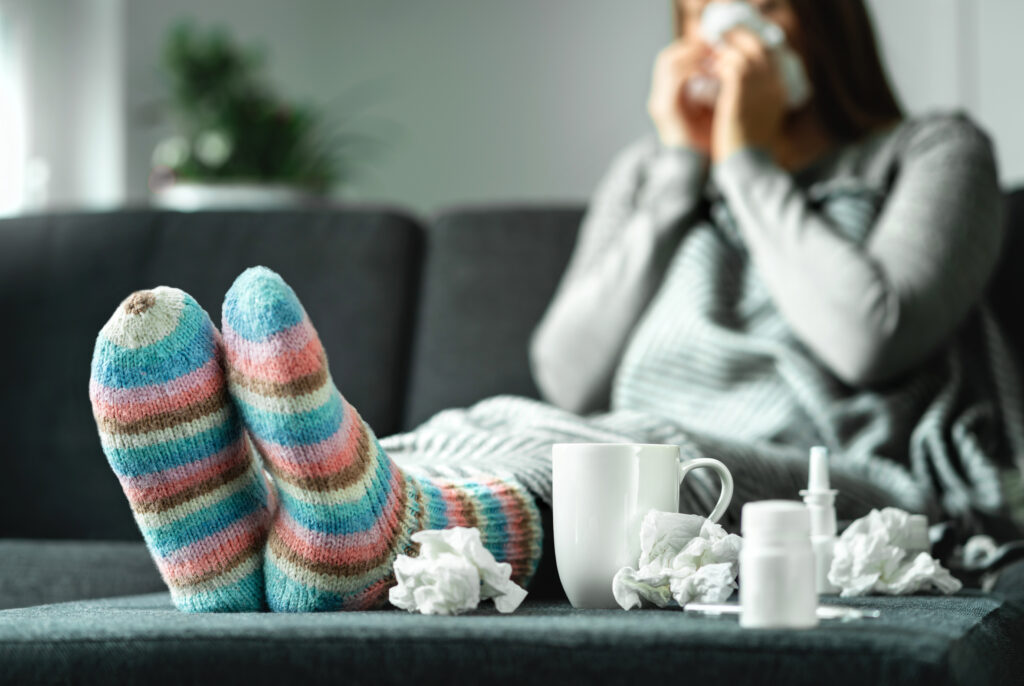By Dr Umberto Russo MBBS. FRACGP Medical Director, National Home Doctor Service
As doctors, some of the most common illnesses we treat are upper respiratory tract infections, such as coughs, colds and flu. People often talk about colds and flu (influenza) in the same breath, but in fact, while some of the symptoms may be the same, colds and flu are not the same. They are different illnesses, caused by different viruses.
Colds
Colds are extremely common. The average person will have 2-3 colds per year, and children even more. The common cold is responsible for more days off work and school, and more visits to the GP, than any other illness. Colds are spread by innumerable viruses, more than 200 different varieties at last count. Of all the cold viruses, the rhinoviruses are the most common, causing more than 40 % of all colds. Colds affect the nose, the throat, and the upper airways. Common symptoms include coughing, fever, sore throat, sneezing, a blocked or runny nose and general congestion. Unfortunately, despite science’s best efforts, there is no vaccine for the common cold.
The flu
The flu is a more serious viral infection that affects your whole body, including your nose, throat and sometimes your lungs. Typical symptoms of flu include fever, headache, sore throat and muscle aches. Flu symptoms tend to be more severe and last longer than those of a cold. Vaccines to prevent the flu are available and further information is available from your GP.
See a Doctor or not?
If you come down with a cold, in most cases it’s a case of treating the symptoms (see below) and waiting for the cold to go away. A cold can cause a flare up of asthma, in which case you may need to see a Doctor. Other complications that may stem from a cold include ear infections, throat infections, bronchitis, sinus infections and pneumonia. The flu can lead to complications such as chest infections and pneumonia, particularly among the very young and elderly. If you are feeling very unwell, and you think you have the flu, it is wise to book an appointment with your regular GP to get checked. Or, in urgent cases when your GP is closed, you can book an after hours Doctor home visit on 13SICK, that’s 13 7425.
Treatment options to relieve cold symptoms:
- Over-the-counter cold medications ie. decongestants and cough medicine
- Rest
- Increased fluid intake
- Pain relief, such as paracetamol or ibuprofen
- Warm, salt water gargles for sore throats
- Steam for congestion
Treatment options for the flu
- Rest
- Increased fluid intake
- Pain relief, such as paracetamol or ibuprofen
Specific influenza antiviral medicines can reduce the severity and the duration of influenza, but need to be taken within 48 hours of the first symptoms. These medicines need to be prescribed by a doctor, and are usually considered for people at higher risk of complications from influenza infection.
The role of antibiotics in colds and flu
Antibiotics are powerful medicines that can kill bacteria – and only bacteria. Antibiotics don’t work against viruses, which are the organisms that cause the common cold and flu. Your own immune system can usually clear the infection. Antibiotics may even make symptoms worse, as some people develop side-effects such as diarrhoea, feeling sick or a rash. Antibiotics may be prescribed if you become more unwell when a secondary infection, caused by a bacteria, produces a complication, such as pneumonia. This is unlikely to occur if you are otherwise healthy.
How to stop the spread of colds and flu
- Wash your hands! Cold and flu viruses are spread by touch
- Wash hands with soap and water, or an alcohol-based hand rub
- This is especially important when you’ve come in contact with someone who is unwell
- Wash your hands after touching keyboards, stair rails and door handles in public spaces such as libraries, classrooms and public transport
- Cough or sneeze into tissues (and then throw them away)
- If you don’t have a tissue, cough or sneeze into your elbow
- Don’t cough or sneeze over others, or over surfaces, such as tables, benches and door handles
- Avoid touching your eyes, nose and mouth
- Stay home from work or uni when you are unwell. You are contagious for the first few days of a cold, and you will feel better more quickly if you rest.
Remember, if you have concerns about your symptoms, see your Doctor.
Dr Umberto Russo MBBS (Adelaide) FRACGP is the General Manager of Clinical Governance in South Australia for National Home Doctor Service. He has more than 23 years experience both as a GP and a visiting home doctor, with a special interest in after-hours medical care.





